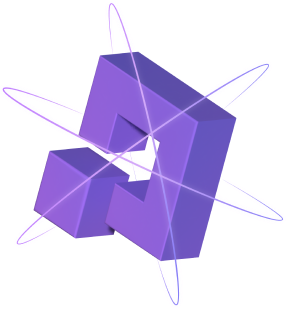The Only Ultimate Decentralized Launchpad Platforms List: The Best IDO Launchpads Analyzed & Rated
With so many new decentralized launchpads popping up every day, how can you find out which platform is worth launching your token on from the ones you can simply scroll past. CoinLaunch is an ultimate database that finds, diligently reviews and rates all existing DEX platforms that provide infrastructure for the fundraising of early-stage tokens. Our experts have put all the findings in a comprehensive list, with detailed stats, in-depth reviews of an investment profile and online presence analysis of each platform. Save valuable time on researching DEX launchpads, steer clear of potential scams, and uncover hidden gems with the potential of launching x100 ROI projects with CoinLaunch!
Best IDO Launchpads




New IDO Platforms
Highlights
| Launchpad | Score | Status | Project Support | Social Influence |
Number of Token Sales |
|---|---|---|---|---|---|
|
|
Medium | IDO Platforms | Very Low | High |
0 |
A Comprehensive IDO Platform List Evaluated by CoinLaunch
Welcome to CoinLaunch, an ultimate data hub for crypto enthusiasts, investors and entrepreneurs!
Here we conduct rigorous research and analysis of new and established DEX launchpads to ensure that you get the most up-to-date information, stats and rates. Our team of experts has developed a unique rating system, CoinLaunch Score, that takes into account a wide range of factors (>80!) including a platform’s usability, reputation, participation rules, and its overall performance.
With the help of our database, you can easily monitor, compare and select the best crypto launchpads that host IDO, ILO, and IFO token rounds. Check out our complete DEX launchpad list and in-depth reviews of each platform now.

What is an IDO launchpad?
IDO launchpads are investment collection platforms that allow crypto businesses to issue and launch tokens in a decentralized manner through their infrastructure (via smart contracts) and resources. The concept of an IDO launchpad arose as a reaction to issues project owners and crypto investors faced while participating in traditional ICOs and IEOs. It includes excessive centralization in fundraising, a lack of transparency in project listings as well as investor selection processes and mandatory KYC verification.
Besides providing a decentralized infrastructure for launching new crypto tokens, IDO launchpads sometimes assist young projects in marketing and provide technical support, since their success is directly linked to the performance of IDO rounds conducted on their venue. IDO launchpads offer more than just a decentralized infrastructure for launching new crypto tokens. These platforms play a vital role in supporting young projects by providing essential marketing assistance and technical support.
What is a DeFi incubator?
DeFi incubators are organizations that help DeFi startups produce innovations, develop their projects, and turn ideas into real businesses. They usually have a physical space with areas for learning, invention, collaboration, negotiation, and creativity.
Incubators are an important part of the startup and business environment. They often become partners of innovation centers, technology companies, scientific or technical parks, and investment funds. DeFi incubator experts help newcomers establish useful connections and help attract investments.
What is a DeFi accelerator?
DeFi accelerator is an intensive DeFi startup development program that implies the participation of experienced mentors. In a short time determined by the acceleration program, mentors train a startup’s team, help improve the product and bring it to a qualitatively new level. Some DeFi accelerators also provide an initial investment. The business accelerator ends with a demo day — a public presentation of startups to investors.
The benefits of launching tokens on a DEX launchpad
- Decentralization. There are no third parties, which means transparency and a low risk of manipulation.
- Liquidity. Token holders can trade their tokens on DEXes immediately after their launch.
- Lower costs. DEX launchpads can be more affordable for small startups since they eliminate the presence of intermediates and usually charge very low fees.
CeFi launchpad vs DeFi platform
CeFi launchpads are organized similarly to traditional stock exchanges. They are managed by specific legal entities that are responsible for the operation of the platform, the safety of user funds, and compliance with laws.
Therefore, the administrations of CEX launchpads have access to customer funds and, if necessary, can block an individual user, a specific operation, or an entire direction, such as withdrawals. In addition, each new user is required to complete the identity verification (KYC) procedure.
In turn, DEX launchpads are not an intermediary in transactions, they do not store funds and personal data of their users. Clients are most often identified using blockchain addresses and non-custodial wallets connected to the application. Trade transactions and other actions take place with the help of smart contracts, meaning that all the business processes happen automatically and autonomously.



